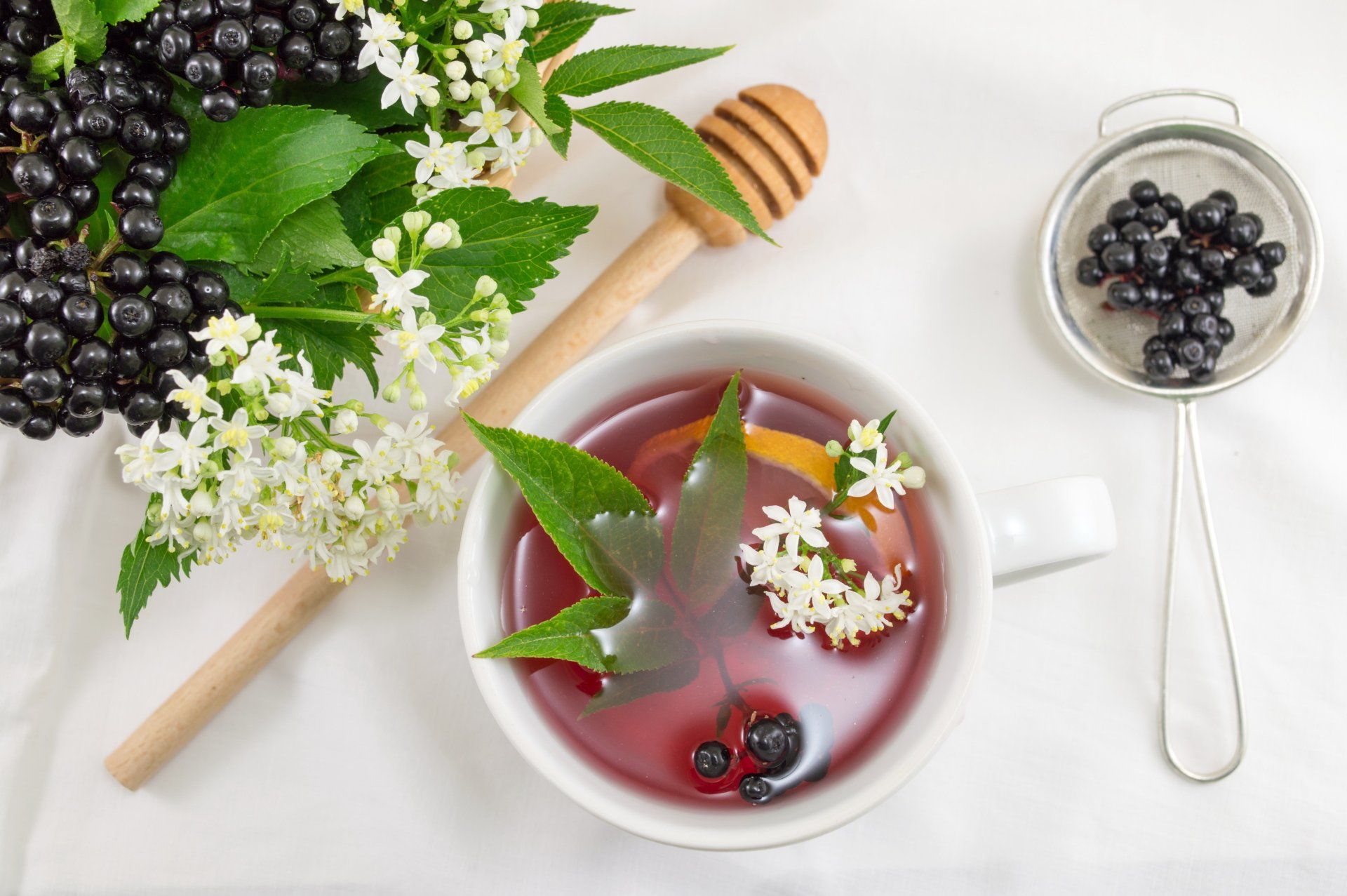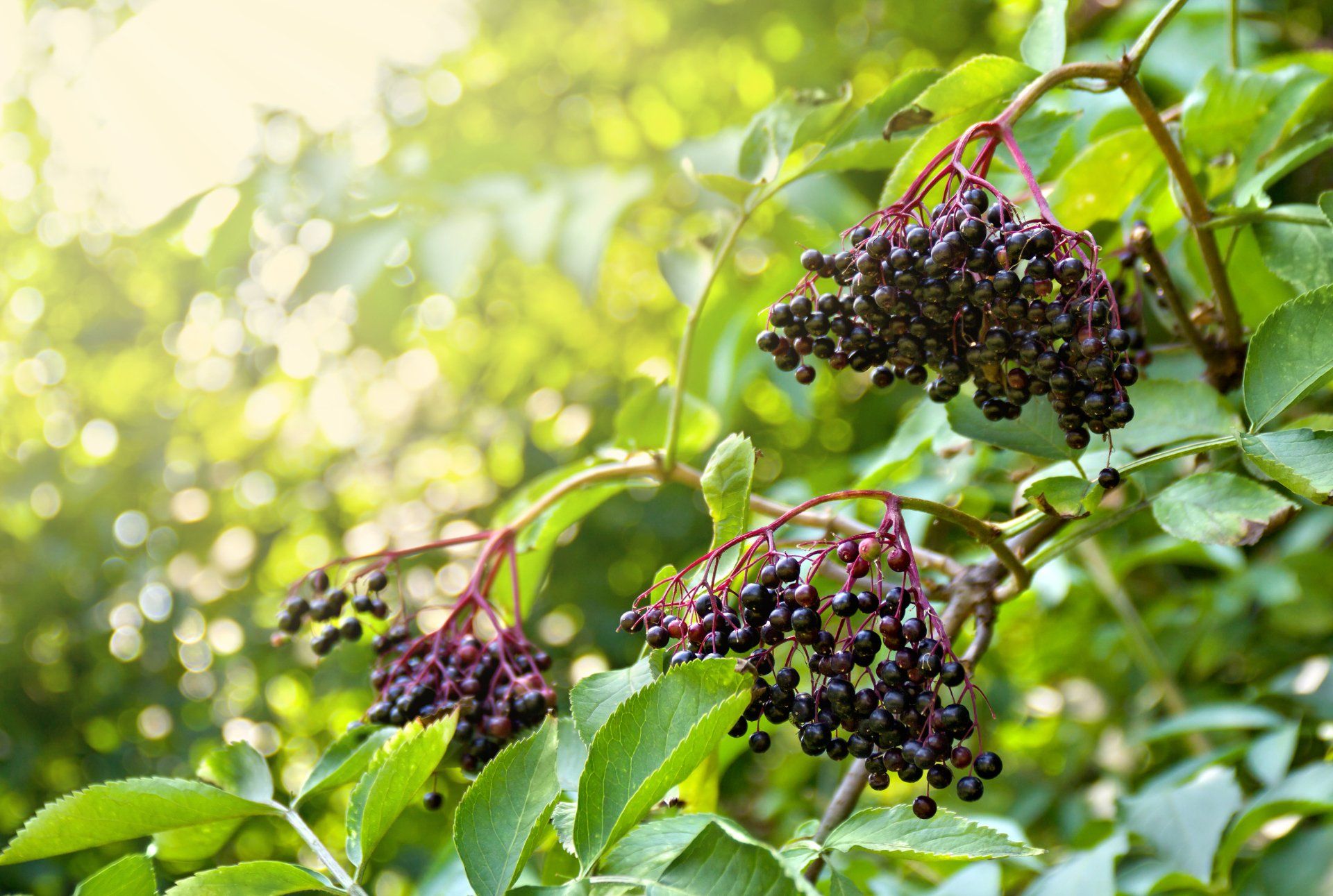Seasonal Preparedness with Elderberry and Honey
If a sneeze can travel at 100 miles an hour and disperse up to 100,000 germs into the air, it is not a matter of who will be exposed, but who will have their immune system primed and ready.1
Science has confirmed that temperature and relative humidity also play a role in the transmission of seasonal viruses.2 With the upcoming season wrought with opportunity for exposure, compounded by the stress of busy schedules, changing weather, and holiday travel, you must prepare the family and coach everyone’s body to hold its own against the viral competition. There is nothing worse than succumbing to the immune burden!

How should you prepare? First, make it a habit to wash your hands with soap and water for at least 20 seconds and always cover your mouth when you sneeze, since transmission of germs may occur a day or more before you show any signs.3 Next, support the natural daily recovery of your body with a healthy diet and quality sleep. The wisdom of consuming superfoods, such as elderberry and honey, have become a time-honored seasonal tradition. Evidence of these nurturing nutrients abound since we first found the hives dripping with delicious liquid gold, and we harvested our first clusters of ripe, tangy edible berries.

Start now to prepare your family for the season with elderberry and honey. On your mark, get set, go!
Jennifer Rasp-Bickerton DC, MS has a passion for sharing information to help others enhance their lives with dietary supplements. Dr. Rasp-Bickerton’s experience includes vitamin retail management, Nutraceutical sales, and a nutrition-based chiropractic practice.
References
1. Webmd. (n.d.) 11 Surprising Sneezing Facts. https://www.webmd.com/allergies/features/11- surprising-sneezing-facts#1
2. Lowen, A. C., Mubareka, S., Steel, J., & Palese, P. (2007). Influenza Virus Transmission Is Dependent on Relative Humidity and Temperature. PLoS Pathogens, 3(10), e151. http://doi.org/10.1371/journal.ppat.0030151
3. CDC. (2017). How Flu Spreads. https://www. cdc.gov/flu/about/disease/spread.htm
4. Tiralongo, E., Wee, S. S., & Lea, R. A. (2016). Elderberry Supplementation Reduces Cold Duration and Symptoms in Air-Travellers: A Randomized, Double-Blind Placebo-Controlled Clinical Trial. Nutrients, 8(4), 182. http://doi. org/10.3390/nu8040182
5. Krawitz, C., Mraheil, M. A., Stein, M., Imirzalioglu, C., Domann, E., Pleschka, S., & Hain, T. (2011). Inhibitory activity of a standardized elderberry liquid extract against clinically-relevant human respiratory bacterial pathogens and influenza A and B viruses. BMC Complementary and Alternative Medicine, 11, 16. http://doi.org/10.1186/1472-6882-11-16
6. Paul IM, Beiler J, McMonagle A, Shaffer ML, Duda L, Berlin CM. Effect of Honey, Dextromethorphan, and No Treatment on Nocturnal Cough and Sleep Quality for Coughing Children and Their Parents. Arch Pediatr Adolesc Med. 2007;161(12):1140–1146. doi:10.1001/ archpedi.161.12.114










